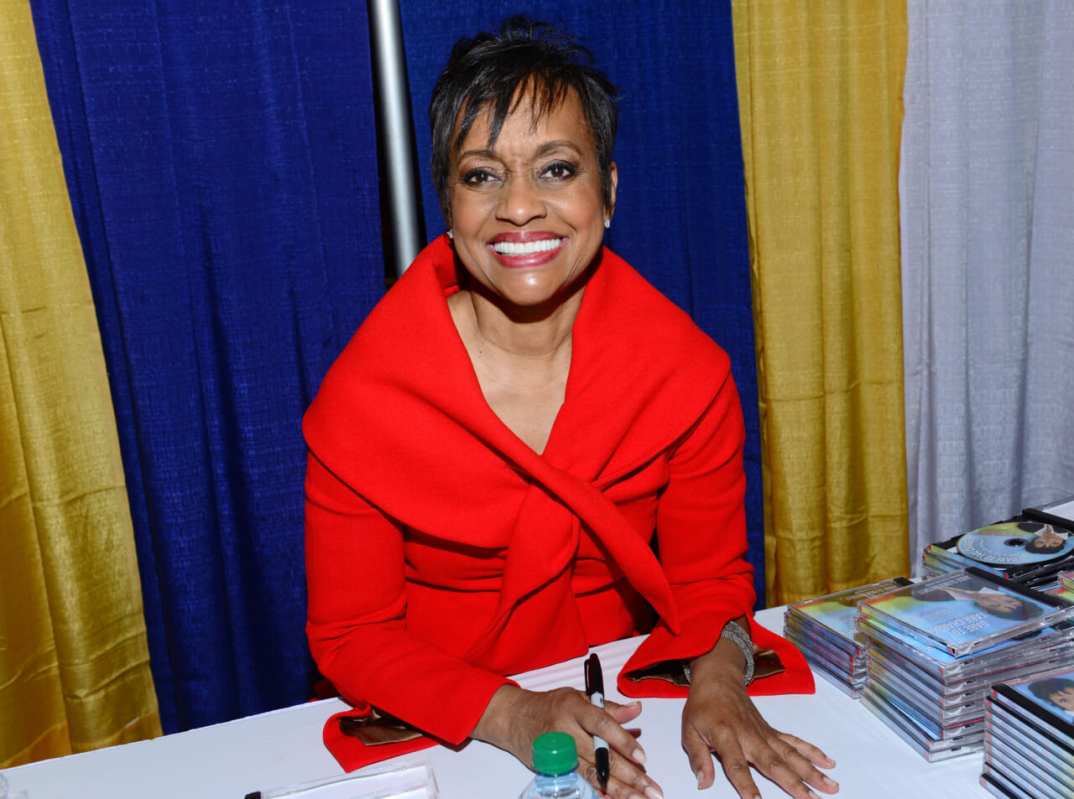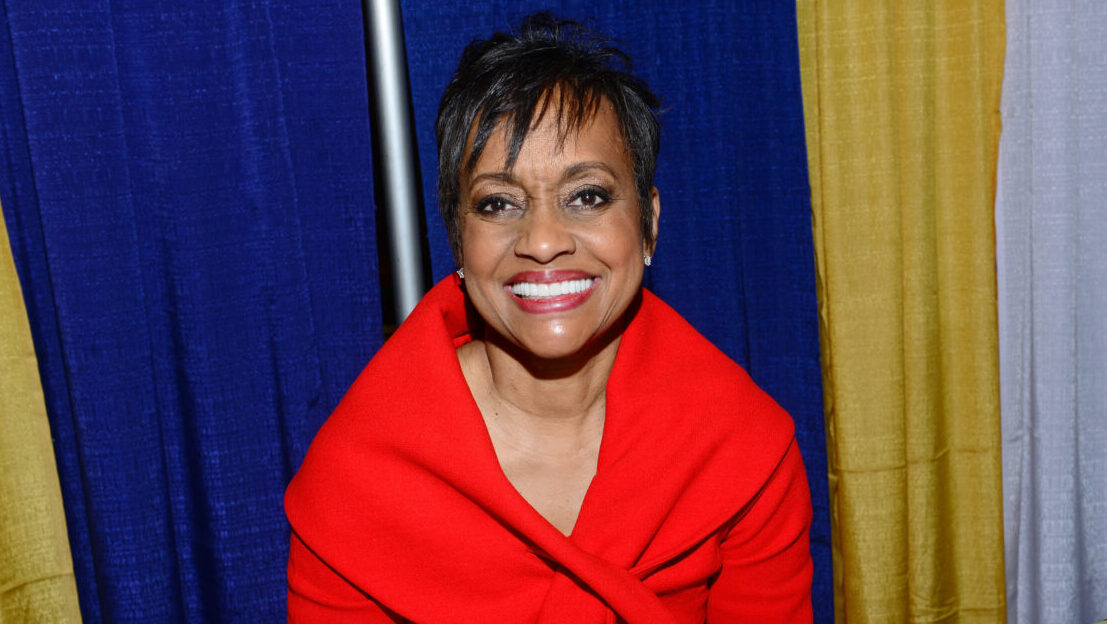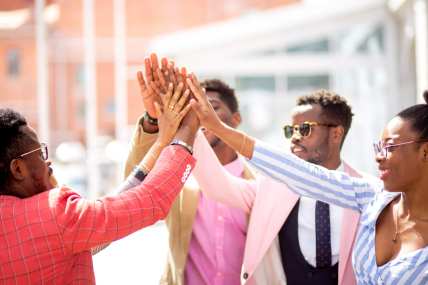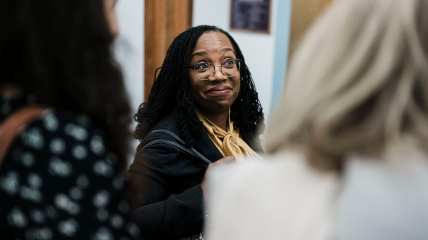Judge Glenda Hatchett wants her legacy to be changing the world for the better
The Emmy-nominated television judge discussed her love for the law, her advice to the next generation and her career-defining moments.

When Judge Glenda Hatchett enters the courtroom, she rules with a firm but compassionate hand.
The two-time Emmy-nominated judge made her television debut with “Judge Hatchett,” the eponymous and nationally syndicated courtroom series that ran for a total of 16 years.
In 2014, she decided to take a break from the television world and start her own national law firm where she represented the family of Philando Castile, a victim of police brutality. The Hatchett Firm, which specializes in wrongful death, catastrophic injury cases and fatal police misconduct cases, fights for people who have experienced a significant loss due to the carelessness of others.
In 2016, Judge Hatchett returned to the television courtroom with a new show, “The Verdict with Judge Hatchett,” produced by Byron Allen’s Entertainment Studios (theGrio is also owned by Allen). Currently in its fifth season, the show allows her to continue helping and inspiring the next generation. The accomplished author and community leader talked to theGrio about her passions, most impactful Black inspirations and her career.

I want to start from the beginning. What inspired you to pursue law?
The reality was I graduated from Mount Holyoke [College] with a degree in history and political science and I thought, ‘What am I going to do with this?’ So, I actually worked a year before I went back to law school and it really was that year that made me think about what I wanted to do.
I never expected to practice law in the traditional sense. My ideal job, I thought, was to run a multibillion global foundation and give away other people’s money to things I believed in. It’s just interesting how my life is taking these turns and I am where I am now. You think you’re going to do one thing, and God and the universe [put] you on a different track.
So why do you love what you do?
I am able to touch people who I will never know that I touched. I take my work on the bench very seriously. I really feel like it’s [my] responsibility to really use this platform that I’ve been given to hopefully do good and I love it. For that, I’m very grateful.
So, with Biden announcing the nomination of Ketanji Brown Jackson—the first Black woman nominated to be in the Supreme Court—can you speak to the importance of Black woman in that seat of power?
Black women make up a significant portion of the United States population and I believe that [the Supreme] Court ought to look like America. It has been all of these years that we have never had a Black woman, so I could not be happier about that.
I also appreciate the fact that this administration has been very intentional about appointing people of different backgrounds. I think about what Ruth Ginsburg would be saying right now. I’m sure that she would be enormously pleased. She was one and will always be one of my sheroes.
We just ended Black History Month—but obviously, we should be celebrating year-round. Who are some of your favorite Black icons that have inspired you to be who you are?
It’s interesting because my father was and will always be—through all entirety—my hero, [and] my role model. If he had a fraction of the opportunities that I had, he would have been on the US Supreme Court.
I’m very clear that I stand on the shoulders of mighty generations. I look at people who really worked and made the sacrifices, so that you and I can be right here having this conversation today. I don’t take any of that for granted. It is incumbent upon me to in turn be that kind of support and encouragement for new generations that follow.
You have over 30 years of experience, so what advice would you give to younger generations?
I would tell them to be true to who you are. You have to be very clear about who you are because if you aren’t, [then] you’ll be like a tumbleweed, and you’ll just be tossed from place to place.
Understand that there will be some setbacks. I talk about them as challenges and what I learned from them to make me stronger. You have to look at it to say, ‘OK, I am not defeated. I am going to get up. I am going to learn from this situation, and I am going to move on.’
Looking back at your career, what would you say are some of your career-defining moments?
People thought that they should put me in a straitjacket and take me to some psychiatric ward when I left my job at Delta Airlines. I was the highest-ranking woman of any color worldwide for the company. I went to the bench and to juvenile court because I thought it was an opportunity to get my hands on a 15-year-old in a way that empowered them to make different choices, [so] we might not see them in the criminal system.
The new defining point in my life has been a national law firm based in Atlanta and I took on the Philando Castile case. I took on that case right after my daughter tragically died after childbirth. I feel like my life continues to evolve and I’m grateful for that.
What do you want your legacy to be?
I want my legacy to be that I really worked hard to try to leave things in better shape than I found them. My priority was to be the best mother I could be to my children, and now to my grandchildren, and to really lift them [up] as well as other children. I don’t say my children are just defined biologically, but just people [that I] encourage to understand that the power is within them to make things not only better for themselves, but for people around them.

Kayla Grant is a cross-topic multimedia journalist who is pursuing her Master of Science in Journalism at Northwestern University’s Medill School of Journalism. In addition to being featured in theGrio, the Clark Atlanta University alumna’s words are published in Poynter Institute’s HBCU Voter Guide, Oz Magazine, iPondr, Prism, rolling out and the Atlanta Business Journal. Follow her on Twitter: @TheKaylaGrant.
TheGrio is FREE on your TV via Apple TV, Amazon Fire, Roku, and Android TV. Please download theGrio mobile apps today!



